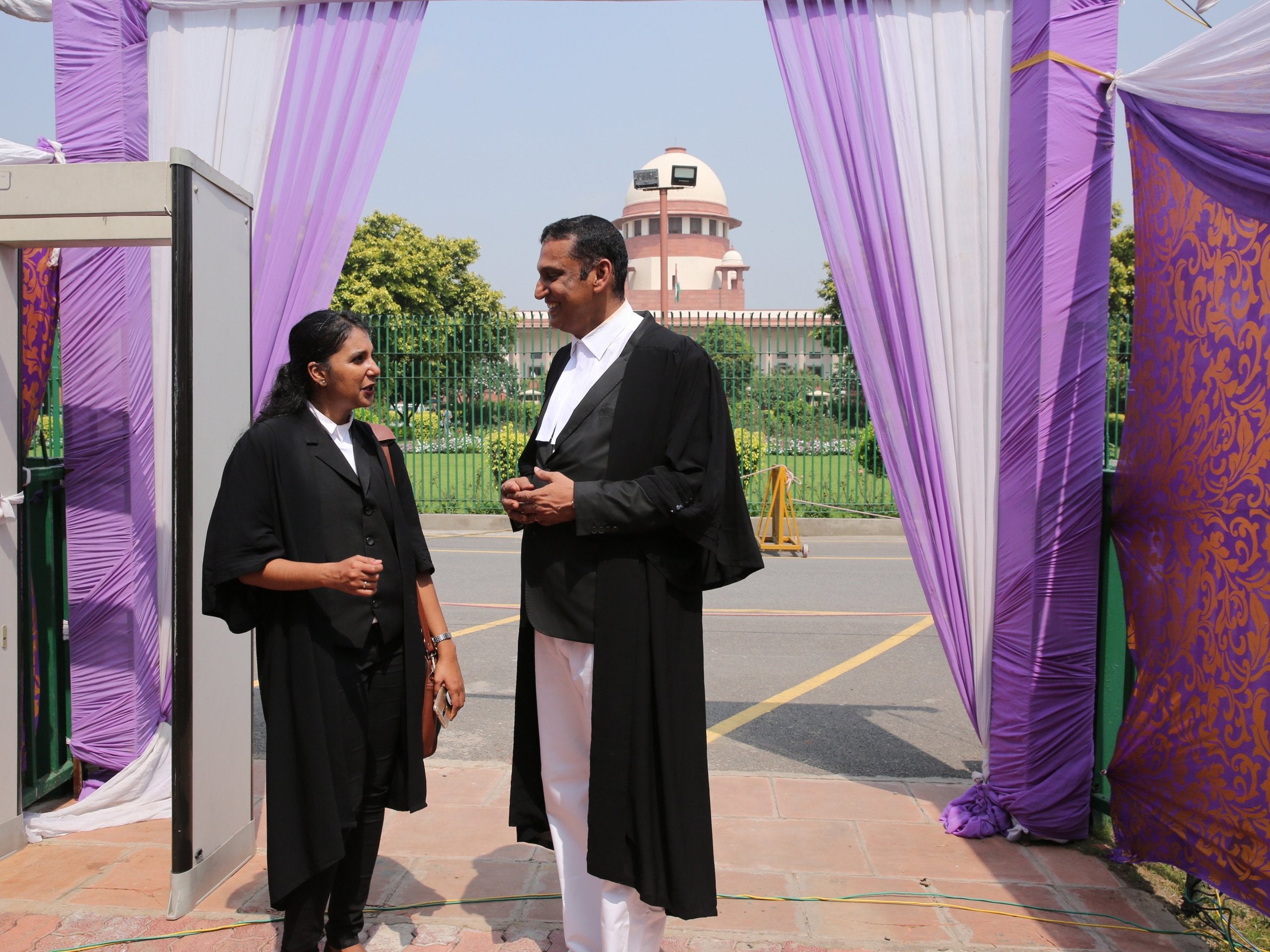India's Supreme Court strikes down sexist colonial-era law making adultery a criminal offence
It is the latest ruling being welcomed by activists

Your support helps us to tell the story
From reproductive rights to climate change to Big Tech, The Independent is on the ground when the story is developing. Whether it's investigating the financials of Elon Musk's pro-Trump PAC or producing our latest documentary, 'The A Word', which shines a light on the American women fighting for reproductive rights, we know how important it is to parse out the facts from the messaging.
At such a critical moment in US history, we need reporters on the ground. Your donation allows us to keep sending journalists to speak to both sides of the story.
The Independent is trusted by Americans across the entire political spectrum. And unlike many other quality news outlets, we choose not to lock Americans out of our reporting and analysis with paywalls. We believe quality journalism should be available to everyone, paid for by those who can afford it.
Your support makes all the difference.India’s Supreme Court has struck down a colonial-era law that made adultery a criminal offence in certain situations, punishable by up to five years in prison.
The law made it a crime for a man to have sex with a married woman without her husband’s permission, but made no provision for wives to prosecute husbands who cheated on them.
Petitioners said the law, dating back to the British-enacted Indian Penal Code, was inherently sexist, holding only men responsible for extra-marital affairs and treating women simply as victims without any agency of their own.
Striking down section 497 of the code, the court ruled that adultery will no longer be treated as a criminal offence, though it should still be considered “a civil wrong” for the purposes of dissolving a marriage.
It is the latest in a series of rulings in recent weeks being celebrated by activists for affording more rights to women, religious minorities and members of the LGBT+ community.
In Thursday’s judgment, the court observed that “the husband is not the master of woman”. It said a law which effectively only punished wives for adultery was unconstitutional, as it violated women’s protection to equal rights under the law.
Rekha Sharma, chief of the National Commission for Women, told ANI: “I welcome this judgment. It was an outdated law which should have been removed long back. This is a law from the British era.”
Section 497 stated that: “Whoever has sexual intercourse with a person who is and whom he knows or has reason to believe to be the wife of another man, without the consent or connivance of that man, such sexual intercourse not amounting to the offence of rape, is guilty of the offence of adultery.”
“Excellent decision,” tweeted Sushmita Dev, a politician and president of the opposition Congress Party’s women’s wing.
She said that “a law that does not give women the right to sue her adulterer husband ... is unequal treatment and militates against her status as an individual”.
Political commentator Harini Calamur said the law “dated from an era when women were legally the property of their husband.
“This terrible, terrible British law, that treated women as chattel, has finally gone”, she said.
The ruling was made by a five-judge bench led by the retiring chief justice Dipak Misra. Mr Misra had reportedly identified a number of key laws that he believed needed progressive reforms before he is required to step down at the age of 65 next week.
A Misra-led bench ruled earlier this month that another colonial-era law, which made gay sex a criminal offence, should also be struck down.
That ruling was not contested by the government and prompted widespread celebrations, as well as positive responses from rights activists all over the world.
The reaction to Thursday’s ruling was not quite so roundly positive, however. Some activists had called for the law to be made gender neutral rather than being struck down altogether, and Narendra Modi’s ruling BJP had actively opposed the petition, saying “making adultery legal will hurt marriage bonds”.
Swati Maliwal, chair of the Delhi Commission for Women, said she “totally disagrees” with the Supreme Court decision, calling it “anti-women”.
“Instead of making [section] 497 gender neutral… they have decriminalised [adultery] totally”, she said. “They’ve given licence to married couples [for] adulterous relationships. What’s sanctity of marriage then?”
Join our commenting forum
Join thought-provoking conversations, follow other Independent readers and see their replies
Comments